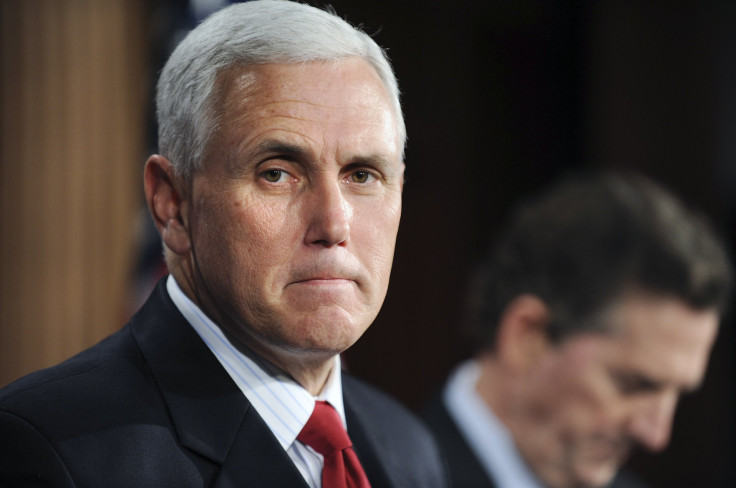Religious Freedom Restoration Act: Indiana Gov. Mike Pence Says Anti-LGBT Law Won't Be Changed

Indiana Gov. Mike Pence indicated Sunday he would consider not changing but clarifying the controversial Religious Freedom Restoration Act he signed into law Thursday. “We’re not going to change the law,” Pence said on ABC News’ “This Week with George Stephanopoulos.” “But if the general assembly in Indiana sends me a bill that adds a section that reiterates and amplifies and clarifies what the law really is and what it has been for the last 20 years, then I’m open to that.”
The Religious Freedom Restoration Act has been widely interpreted to mean that business owners can decline to deal with lesbian, gay, bisexual or transgender people on religious bases without being held to account for this discrimination by state governmental entities. Among other things, it prohibits an applicant for employment, an employee or an ex-employee from pursuing certain legal causes of action against an employer.
The adoption of the law has incited protests in Indiana, as well as backlash by public figures ranging from Apple Inc. CEO Tim Cook to entertainer Miley Cyrus. Some people have compared the state law to the Jim Crow laws that permitted racial segregation in the U.S. South years ago.
Some commercial enterprises already have distanced themselves from Indiana because of the law. The business-review website Angie’s List has abandoned a plan to expand its headquarters in Indianapolis, and the cloud-computing company Salesforce.com has canceled firm-related travel to the state.
Despite the controversy, Pence contended on “This Week” that there were parallels between the state Religious Freedom Restoration Act enacted last week and the federal Religious Freedom Restoration Act enacted in 1993.
“The question here is if there is a government action or a law that an individual believes impinges on their religious liberty, they have the opportunity to go to court, just as the Religious Freedom and Reformation Act that Bill Clinton signed allowed them to go to court, and the court would evaluate the circumstance under the standards articulated in this act,” the governor said.
According to another guest on the ABC News show, White House Press Secretary Josh Earnest: “If you have to go back two decades to try to justify something that you’re doing today, it may raise some questions about the wisdom of what you’re doing. It should be easy for leaders in this country to stand up and say that it is wrong to discriminate against people just because of who they love.”
© Copyright IBTimes 2024. All rights reserved.






















